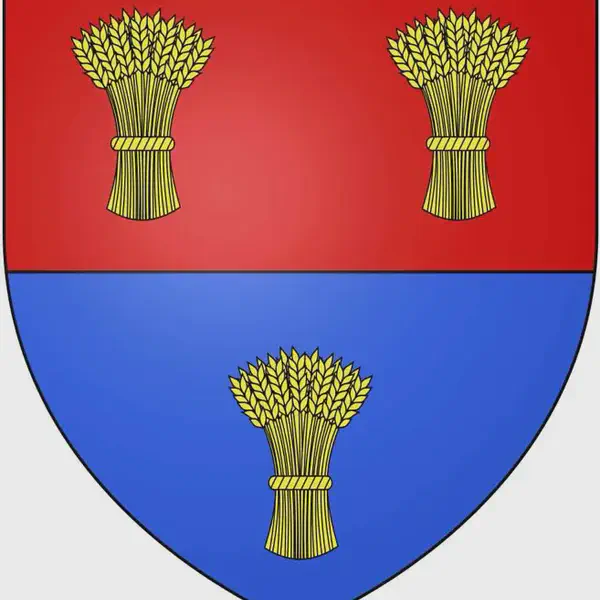
King John Captures William De Braose, 4th Lord of Bramber
July 28, 1210
William de Braose, (or William de Briouze), 4th Lord of Bramber (1144/1153 – 9 August 1211), court favourite of King John of England, at the peak of his power, was also Lord of Gower, Abergavenny, Brecknock, Builth, Radnor, Kington, Limerick, Glamorgan, Skenfrith, Briouze in Normandy, Grosmont and White Castle.
Royal persecution and death in exile[edit]
Coat of arms attributed to William as it appears in Cambridge, Corpus Christi College, Parker Library MS 16 II (Chronica Majora).
The arms are inverted to signify William’s death. Soon after this, William de Braose fell out of favour with King John of England. The precise reasons remain obscure. King John cited overdue monies that de Braose owed the Crown from his estates, but the king’s actions went far beyond what would be necessary to recover the debt. He distrained (seized) de Braose’s English estates in Sussex and Devon, and sent a force to invade Wales to seize the de Braose domains there. Beyond that, he sought de Braose’s wife, Maud de St. Valery, who, the story goes, had made no secret of her belief that King John had murdered Arthur of Brittany. De Braose fled to Ireland, then returned to Wales as King John had him hunted in Ireland. In Wales, William allied himself to the Welsh Prince Llywelyn the Great, and helped him in his rebellion against King John.
In 1210, William de Braose fled Wales disguised as a beggar, to France. His wife and eldest son were captured. William died the following year in August 1211 at Corbeil, France. He was buried in the Abbey of St. Victor in Paris by a fellow exile and vociferous opponent of King John, Stephen Langton, the Archbishop of Canterbury. His hopes to return alive to Wales and for a burial in Brecon were to be unfulfilled. William’s wife, Maud, and eldest son
William, once captured, were allegedly murdered by King John, possibly starved to death while incarcerated at Windsor Castle and Corfe Castle in 1210.
While William had aroused the jealousy of the other barons during his rise, the arbitrary and violent manner of his fall very probably discomfited them and played a role in the Baronial uprisings of the next decade. The historian Sidney Painter, in his biography of King John, called it “the greatest mistake John made during his reign, as the King revealed to his Barons once and for all his capacity for cruelty.